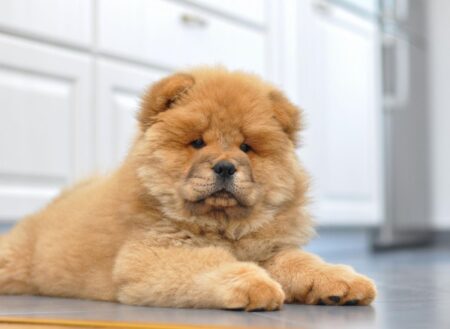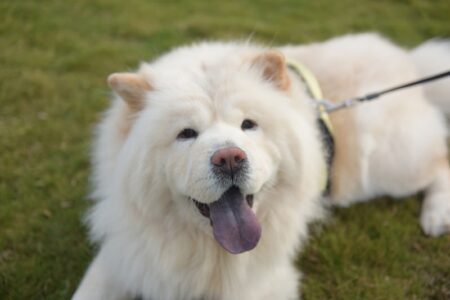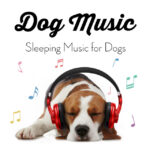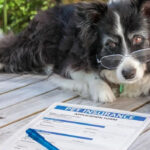Chow Chows are a distinctive and ancient dog breed known for their lion-like mane, distinctive blue-black tongue, and independent nature. When it comes to hypoallergenic qualities, it’s important to note that no dog breed is entirely hypoallergenic. However, some breeds, including the Chow Chow, may be more suitable for individuals with allergies compared to others.
Chow Chows have a double coat that consists of a dense, soft undercoat and a straight, coarse outer coat. While they do shed throughout the year, they tend to have two heavy shedding periods in the spring and fall. The dander, which is composed of tiny, even microscopic, flecks of skin shed by dogs, is a common allergen. Chow Chows, like many other breeds, produce dander, but their dense coat may trap some of it, potentially reducing the amount of loose hair and dander in the environment.
Are Chow Chows Hypoallergenic?
Chow Chows are not considered hypoallergenic. While they do have a double coat that may help trap some of the loose hair and dander, they still shed and produce allergens. Hypoallergenic breeds are typically those that shed less dander and hair, making them potentially more suitable for individuals with allergies.
It’s important to note that the term “hypoallergenic” doesn’t mean allergen-free. No dog breed is entirely hypoallergenic, and individual reactions to allergens can vary. People with allergies should spend time with a specific breed to assess their tolerance before bringing a dog into their home. Regular grooming practices, such as brushing and bathing, can also help manage shedding and reduce the amount of loose hair and dander in the environment.
Overview of Chow Chow
The Chow Chow is a distinctive and ancient dog breed with a rich history. Here’s an overview of the key characteristics and traits of the Chow Chow:
- Origin: The Chow Chow is believed to be one of the oldest dog breeds, originating in China over 2,000 years ago. It was originally used for various purposes, including hunting, guarding, and pulling carts.
- Appearance: Chow Chows are known for their unique appearance. They have a lion-like mane of fur around their neck, a broad head, and a distinctive blue-black tongue. The breed has a sturdy and well-balanced build, with a tail that curls over the back.
- Coat: Chow Chows have a dense double coat that comes in two varieties: smooth and rough. The smooth coat is short and dense, while the rough coat is longer and straight. Both coat types require regular grooming to manage shedding.
- Color: The breed comes in various colors, including red, black, blue, cinnamon, and cream. The coat color can be solid or have lighter or darker shades.
- Temperament: Chow Chows are known for their independent and aloof nature. They are loyal to their families but may be reserved or standoffish with strangers. Early socialization and training are crucial to ensure a well-behaved and well-adjusted Chow Chow.
- Intelligence: Chow Chows are intelligent dogs but can also be strong-willed. Training should be consistent, firm, and positive. They may not be as eager to please as some other breeds, so patience and positive reinforcement are key.
- Exercise Needs: While they are not overly energetic, Chow Chows still require regular exercise to keep them physically and mentally stimulated. Daily walks and playtime are essential to prevent boredom and maintain their overall well-being.
- Health Considerations: Chow Chows can be prone to certain health issues, including hip dysplasia, elbow dysplasia, and entropion (a condition where the eyelids roll inward). Regular veterinary check-ups, a healthy diet, and proper grooming can contribute to their overall health.
- Guarding Instinct: Historically, Chow Chows were used as guard dogs, and this trait can still be present in modern individuals. They may be protective of their family and property.
- Family Compatibility: Chow Chows can be good family dogs with proper training and socialization from an early age. They may do well in homes with older children who understand how to interact with a dog respectfully.
Before considering a Chow Chow as a pet, it’s crucial to research the breed thoroughly and understand its specific needs, including grooming, training, and socialization. Interaction with a reputable breeder or rescue organization can provide valuable insights into individual temperaments and health considerations.
Hypoallergenic Dogs
When discussing hypoallergenic dogs, it’s important to note that no dog breed is entirely hypoallergenic, but some breeds are known to produce fewer allergens than others. These breeds may be more suitable for individuals with allergies. Some examples of dog breeds often considered hypoallergenic include:
- Poodle: Poodles come in standard, miniature, and toy sizes and have a curly, hypoallergenic coat. Regular grooming is necessary to prevent matting.
- Bichon Frise: This small, fluffy breed has a curly coat that produces less dander. Regular grooming is important to maintain their coat.
- Maltese: Maltese dogs have long, silky hair that doesn’t shed as much as other breeds. Regular brushing helps prevent mats and tangles.
- Shih Tzu: Shih Tzus have a long, flowing coat that sheds minimally. Regular grooming is essential to keep their coat in good condition.
- Schnauzer: Miniature Schnauzers have a wiry coat that produces fewer allergens. They require regular grooming to maintain their distinctive look.
- Portuguese Water Dog: Known for its curly or wavy coat, the Portuguese Water Dog is considered hypoallergenic. Regular grooming is necessary.
- Havanese: Havanese dogs have a long, silky coat that sheds minimally. Regular grooming is important to prevent matting.
- Labradoodle: A crossbreed between a Labrador Retriever and a Poodle, Labradoodles often have a low-shedding, hypoallergenic coat.
- Yorkshire Terrier: While no dog is completely hypoallergenic, Yorkies have hair instead of fur, which may be less likely to cause allergies. Regular grooming is essential.
- Coton de Tulear: This small, fluffy breed has a cotton-like coat that sheds minimally. Regular grooming is needed to prevent matting.
It’s crucial to remember that individual reactions to allergens can vary, and spending time with a specific breed before bringing a dog home is advisable for individuals with allergies. Regular grooming practices and maintaining a clean living environment can also help minimize allergens.
SEE ALSO: Music For Dogs to Sleep: Perfect Music For Your Dog
Which Pet Allergens Cause Reactions in People?
There are a variety of pet allergens that can cause reactions in people. The most common allergens come from cats and dogs, but other pets such as birds, rodents, and reptiles can also cause allergies. Some of the most common allergens include pet dander, saliva, urine, and hair. Dander is the dead skin cells that are shed by animals. These particles can trigger an allergic reaction when they are inhaled or come into contact with the skin. Saliva, urine, and hair can also cause allergic reactions when they come into contact with the skin or mucous membranes
How To Stop a Chow Chow From Shedding To Reduce Allergens?
While it’s impossible to stop a Chow Chow from shedding entirely, there are measures you can take to manage and reduce shedding, consequently minimizing the amount of loose hair and allergens in the environment. Here are some tips:
- Regular Grooming: Brush your Chow Chow’s coat regularly to remove loose hair and prevent matting. The frequency of brushing may vary depending on the coat type (smooth or rough), but aim for at least a few times a week.
Use a slicker brush or an undercoat rake to reach the dense undercoat and remove loose hairs effectively. - Bathing: Give your Chow Chow regular baths using a dog-friendly shampoo. This helps to keep the coat clean and reduces the amount of loose hair.
Ensure you use a gentle shampoo that won’t irritate your dog’s skin or strip away essential oils. - Healthy Diet: Provide your Chow Chow with a balanced and nutritious diet. Good nutrition contributes to a healthy coat and skin, reducing excessive shedding.
Consult with your veterinarian to determine the most suitable diet for your dog’s specific needs. - Supplements: Consider adding omega-3 fatty acid supplements to your Chow Chow’s diet. These supplements can contribute to a healthier coat and may help reduce shedding.
- Hydration: Ensure your Chow Chow has access to plenty of fresh water. Proper hydration is essential for maintaining healthy skin and coat.
- Regular Veterinary Check-ups: Schedule regular check-ups with your veterinarian to address any underlying health issues that might contribute to excessive shedding.
- Allergen Management: Use air purifiers with HEPA filters to help reduce airborne allergens.
Wash your dog’s bedding regularly to minimize the accumulation of loose hair and dander. - Professional Grooming: Consider professional grooming services to manage shedding. Professional groomers can perform de-shedding treatments to remove excess hair.
- Consult with a Veterinarian: If shedding is excessive or if your dog is experiencing skin issues, consult with your veterinarian. There may be an underlying health condition that needs attention.
It’s essential to recognize that some shedding is normal for all dogs, including Chow Chows. While these tips can help manage shedding, complete elimination is not possible. If you or someone in your household has allergies, spending time with a Chow Chow before bringing one into your home is advisable to assess potential reactions.
Are There Any Precautions I Should Take As A Potential Owner of Chow Chow Puppies?
Certainly! Owning a Chow Chow, like any other breed, comes with responsibilities and considerations. Here are some precautions and tips for potential owners of Chow Chow puppies:
- Early Socialization: Start socializing your Chow Chow puppy at an early age. Introduce them to various people, environments, and situations to help them develop into well-adjusted adults. Chow Chows can be independent, and early socialization is crucial for preventing behavioral issues.
- Consistent Training: Be consistent, patient, and positive in your training efforts. Chow Chows are intelligent but can be strong-willed. Establish clear boundaries and use positive reinforcement techniques to encourage good behavior.
- Regular Exercise: Provide regular exercise to keep your Chow Chow physically and mentally stimulated. Daily walks, playtime, and other activities can help prevent boredom, which may lead to undesirable behaviors.
- Grooming Routine: Establish a grooming routine early on. Chow Chows have a double coat that requires regular brushing to prevent matting and reduce shedding. Start grooming sessions when your puppy is young to get them used to the process.
- Health Check-ups: Schedule regular veterinary check-ups to monitor your puppy’s health. Keep up with vaccinations, flea and tick prevention, and dental care.
- Allergies: If you or someone in your household has allergies, spend time with Chow Chows before bringing one home to assess potential reactions. Regular grooming and keeping the living environment clean can help manage allergens.
- Temperature Considerations: Chow Chows are sensitive to heat, so be cautious in hot weather. Provide shade, and fresh water, and avoid excessive exercise during the hottest parts of the day.
- Secure Environment: Chow Chows can be territorial and protective. Ensure that your home and yard are secure, as they may show guarding behaviors.
- Chew Toys and Mental Stimulation: Provide appropriate chew toys and mental stimulation to prevent boredom and destructive behaviors. Chow Chows enjoy puzzle toys and activities that engage their minds.
- Quality Diet: Feed your Chow Chow a balanced and high-quality diet appropriate for their age and size. Consult with your veterinarian for dietary recommendations.
- Be Prepared for Independence: Chow Chows are known for their independence. Be prepared for a dog that may not be as overtly affectionate as some other breeds. Respect their need for personal space.
Remember that each dog is an individual, and there may be variations in temperament and behavior. Taking the time to understand the specific needs and characteristics of the Chow Chow breed and providing a loving and consistent environment will contribute to a positive and rewarding relationship with your puppy.
Chow Chow Hypoallergenic Alternatives
If you’re looking for dog breeds that are considered more hypoallergenic or produce fewer allergens than others, there are alternatives to the Chow Chow. While no dog is completely hypoallergenic, the following breeds are often considered better choices for individuals with allergies:
- Poodle: Poodles come in standard, miniature, and toy sizes. Their curly coat minimizes shedding and dander, making them a popular choice for allergy sufferers.
- Bichon Frise: These small, fluffy dogs have a curly coat that produces fewer allergens. Regular grooming is essential to keep their coat in good condition.
- Maltese: Maltese dogs have long, silky hair that sheds minimally. Regular brushing helps prevent mats and tangles.
- Shih Tzu: Shih Tzus have a long, flowing coat that sheds less than some other breeds. Regular grooming is necessary to maintain their coat.
- Portuguese Water Dog: Known for their curly or wavy coat, Portuguese Water Dogs are considered hypoallergenic. They require regular grooming.
- Havanese: Havanese dogs have a long, silky coat that sheds minimally. Regular grooming is important to prevent matting.
- Schnauzer: Miniature Schnauzers have a wiry coat that produces fewer allergens. Regular grooming is necessary to maintain their distinctive look.
- Coton de Tulear: This small, fluffy breed has a cotton-like coat that sheds minimally. Regular grooming is needed to prevent matting.
- Yorkshire Terrier: While not entirely hypoallergenic, Yorkies have hair instead of fur, which may be less likely to cause allergies. Regular grooming is essential.
- Labradoodle: A crossbreed between a Labrador Retriever and a Poodle, Labradoodles often have a low-shedding, hypoallergenic coat.
SEE ALSO: Kidney Failure in Dogs: Everything You Need To Know
FAQs
Q. What is the most hypoallergenic dog?
A. The most hypoallergenic dog breeds are the ones that shed the least amount of dander and hair. Dander is the main allergen that causes reactions in people, so breeds that shed less are generally considered to be more hypoallergenic. Some of the most hypoallergenic breeds include the poodle, schnauzer, bichon frise, and Maltese.
Q. Do Chow Chows shed a lot?
A. Chow Chows are known for their thick, double coats, which can cause them to shed quite a bit. The outer coat of a Chow Chow is made up of long, coarse guard hairs that shed regularly.
Q. Do Chow Chows have sensitive skin?
A. Yes, Chow Chows are prone to having sensitive skin. Their thick, double coats can trap moisture and bacteria, which can lead to irritation and skin infections. Additionally, Chow Chows are susceptible to allergies, which can cause their skin to become dry, itchy, and irritated.
Q. Are chow chows good for first-time owners?
A. Chow Chows are not the best choice for first-time dog owners. They are a strong-willed breed that can be difficult to train. Additionally, they are known to be quite aloof and independent, which can make them challenging to bond with. Chow Chows also require a lot of exercise and mental stimulation, which can be difficult for a first-time owner to provide.
Conclusion
In conclusion, Chow Chows are not considered hypoallergenic. While they have a dense double coat that may trap some loose hair and dander, they still shed, producing allergens that can trigger reactions in susceptible individuals. If you or someone in your household has allergies, it’s important to be aware that no dog breed is entirely hypoallergenic.


